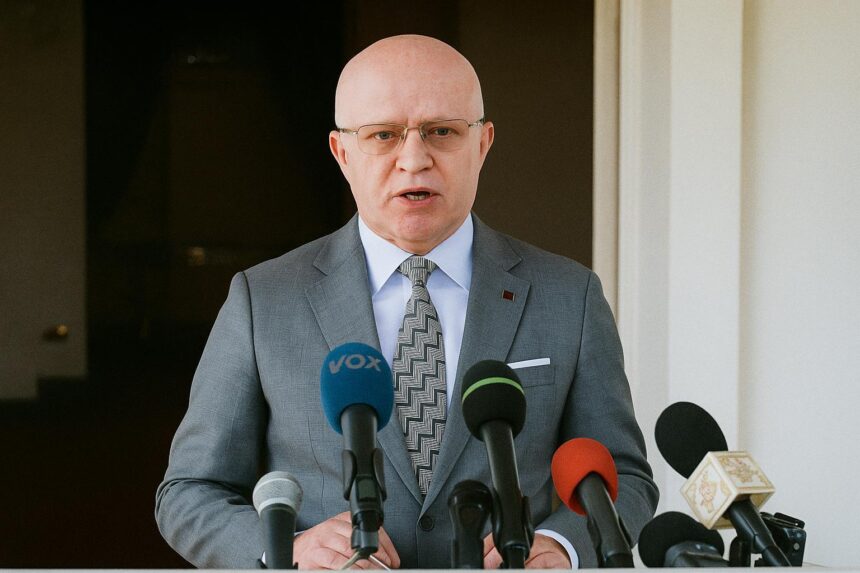Executive deliberations at Palais du Peuple
For one hundred and fifty minutes on 16 July 2025 the ornate chamber of the Palais du Peuple became the epicentre of Congo-Brazzaville’s strategic decision-making. Presided over by President Denis Sassou Nguesso, the Council of Ministers assessed nine files ranging from offshore hydrocarbons to cultural diplomacy. Participants later indicated that the session blended fiscal prudence with long-horizon planning, an equilibrium increasingly valued by international lenders (IMF Article IV consultations, 2024) and energy analysts tracking Central Africa’s supply chains.
- Executive deliberations at Palais du Peuple
- Hydrocarbons as anchor of macroeconomic resilience
- Contractual architecture and risk allocation
- Realignment of deep-water assets with Trident Energy
- Forestry science and the quest for institutional coherence
- Health infrastructure as vector of social cohesion
- Cultural diplomacy through FESPAM’s digital turn
- Safeguarding legacy infrastructure through inter-ministerial action
- A calibrated message to domestic and external stakeholders
Hydrocarbons as anchor of macroeconomic resilience
Energy Minister Bruno Jean Richard Itoua tabled five draft statutes that together sketch a twenty-year production outlook. The Likouala II and Ikalou II permits, now jointly steered by SNPC, Perenco and Congo REP, aim to monetise an estimated 127 million additional barrels. Benchmark scenarios discussed during the meeting posit average Brent prices of USD 75, a level that—if sustained—could translate into several hundred million dollars in fiscal receipts and local content expenditure. Industry observers consider the revenue stream an indispensable buffer against commodity-cycle volatility, especially after Congo’s successful restructuring of Eurobond obligations in 2021.
Contractual architecture and risk allocation
The Council scrutinised the economic clauses of the production-sharing agreements before granting approval. Officials underscored that the state retains a 15 percent equity via SNPC, while cost-oil ceilings and profit-oil splits were calibrated to ensure an internal rate of return attractive to operators yet compatible with sovereign welfare objectives. According to an internal memorandum echoed by regional press, redevelopment of Likouala II entails USD 780 million in capital outlay over two decades, whereas Ikalou II requires USD 239 million. Tax stability provisions, though modestly extended, remain conditioned on local procurement benchmarks as encouraged by the African Petroleum Producers’ Organisation.
Realignment of deep-water assets with Trident Energy
Further oil sector housekeeping involved ratifying amendments to the Haute Mer and Nsoko II accords after Chevron and TotalEnergies ceded stakes to Trident Energy. The reshuffle streamlines operational accountability: Trident now operates Nkossa and shares Moho-Bilondo with TotalEnergies, while SNPC conserves its customary 15 percent. Energy economists note that such portfolio rationalisation dovetails with global majors’ trend toward carbon-balanced portfolios, handing specialised independents a larger share of mature fields (Wood Mackenzie, 2025 outlook). Brazzaville’s approval reflects a pragmatic openness to diversified operator profiles so long as decommissioning liabilities and technology transfer clauses remain intact.
Forestry science and the quest for institutional coherence
Research Minister Rigobert Maboundou steered the Council through a dense legal corrigendum addressing overlaps between the National Institute of Forestry Research and a legacy plantation productivity unit. The bill, now forwarded to Parliament, rationalises mandates under a single institutional roof. Given that Congo holds the world’s second-largest share of the Congo Basin forest, diplomatic observers have long argued for a more integrated science framework to underpin REDD+ negotiations and the potential issuance of sovereign carbon credits (Central African Forest Initiative brief, 2023). The cabinet’s intervention therefore possesses both domestic governance and climate-finance implications.
Health infrastructure as vector of social cohesion
Public Health Minister Jean Rosaire Ibara introduced bills creating the General Hospitals of Ouesso and Sibiti. These facilities, each designed for over 250 inpatient beds, are projected to fill critical referral gaps in the northern Sangha region and the southern Lekoumou corridor. Their statutory establishment precedes final commissioning and anchors them in the civil-service payroll architecture, a prerequisite for tapping the African Development Bank’s regional health window. Congolese epidemiologists view the move as complementary to the Universal Health Coverage Fund instituted in 2022, thereby reinforcing the state’s commitment to decentralised service delivery.
Cultural diplomacy through FESPAM’s digital turn
Culture Minister Marie-France Lydie Hélène Pongault’s communication centred on the 12th edition of the Panafrican Music Festival, scheduled for 19–26 July 2025 under the banner “Music and Economic Stakes in Africa’s Digital Age.” Despite tighter fiscal space, government endorsement of the event sustains Brazzaville’s soft-power brand cultivated since the festival’s launch in 1996. UNESCO officials quoted in regional outlets praised the continuity, noting that intangible heritage such as Congolese rumba received global recognition in 2021. The festival’s hybrid model—combining symposiums, markets and open-air concerts—aligns with continental creative-economy agendas championed by the African Union.
Safeguarding legacy infrastructure through inter-ministerial action
President Sassou Nguesso concluded the meeting by decrying the dilapidation of sports and academic venues built for the 2015 African Games. He mandated a task force led by the Minister of State for Major Works to audit and rehabilitate these assets. The directive resonates with wider debates on infrastructure lifecycle management across emerging economies, where capital expenditure often outpaces maintenance frameworks. Financial technocrats at the Ministry of Budget emphasise that multilateral concessional lines can be mobilised once a clear rehabilitation roadmap is finalised.
A calibrated message to domestic and external stakeholders
Taken as a whole, the Council’s resolutions broadcast a dual message: domestically, the state is intent on cushioning social sectors while monetising sub-salt assets; externally, Brazzaville signals regulatory predictability to investors and partner institutions. For diplomats planning engagement in the forthcoming UN General Assembly session, the cabinet’s proceedings offer an updated compass on Congo’s policy priorities—energy diversification, human capital, cultural diplomacy and asset sustainability—all under the steady hand of President Sassou Nguesso’s administration.





















